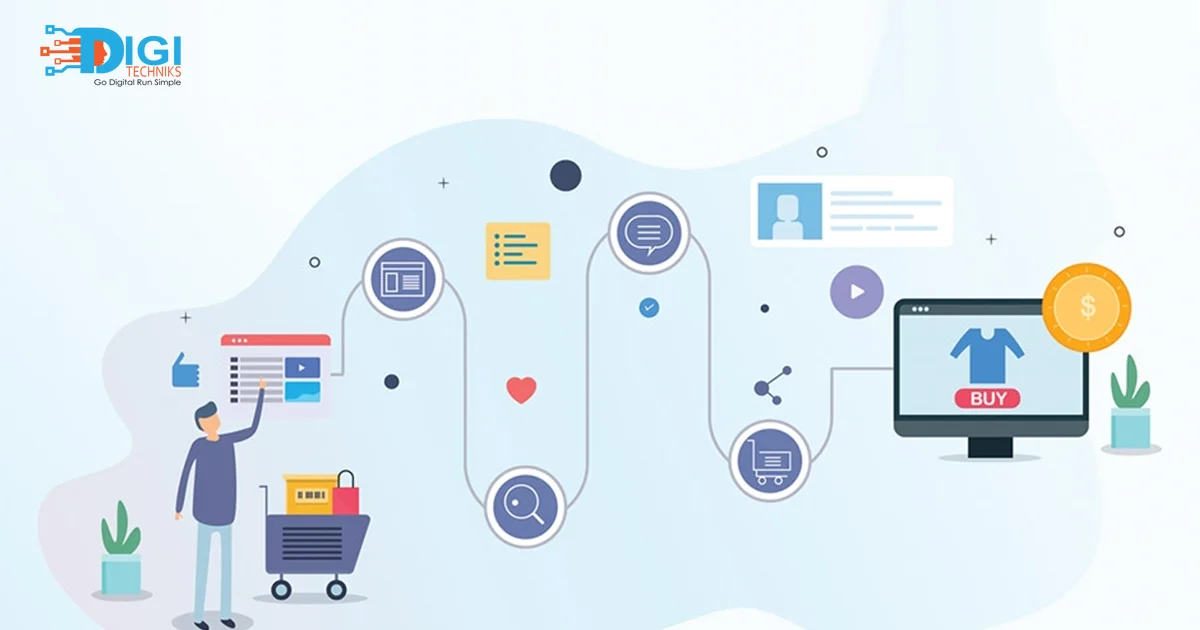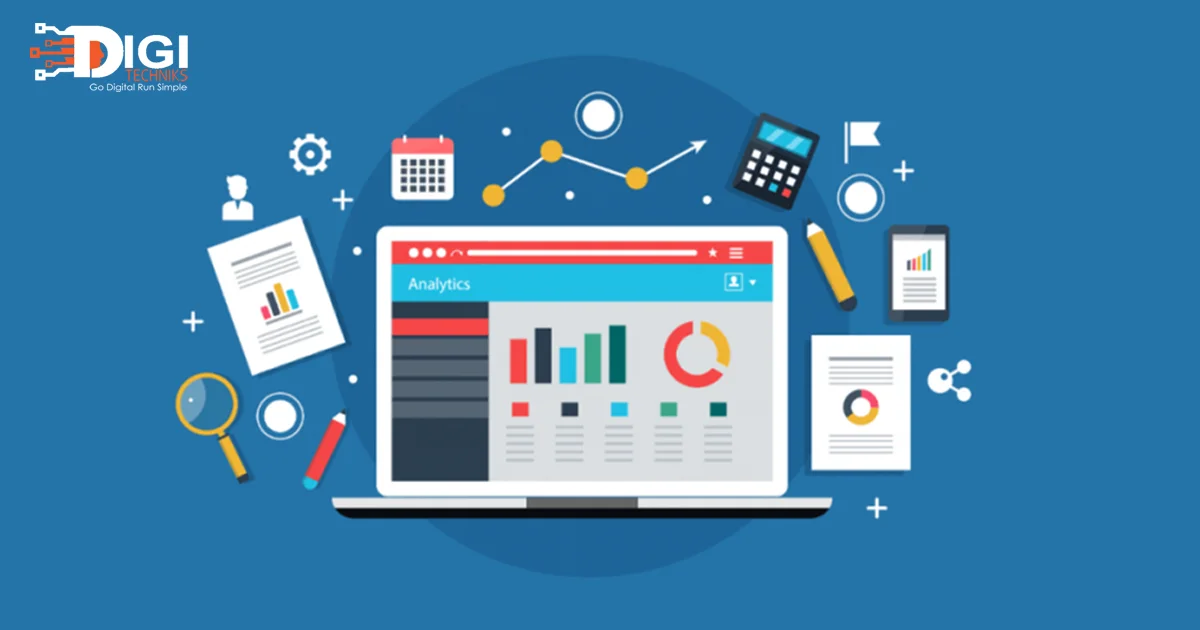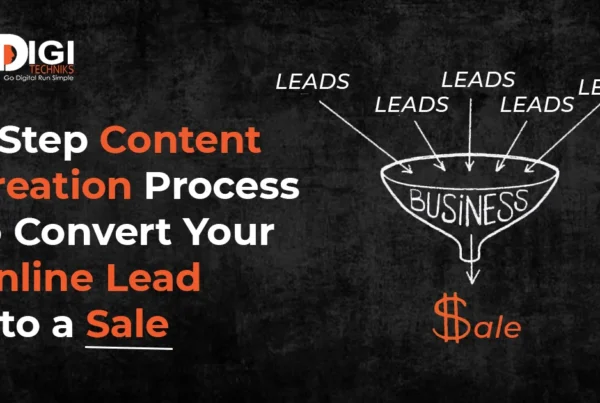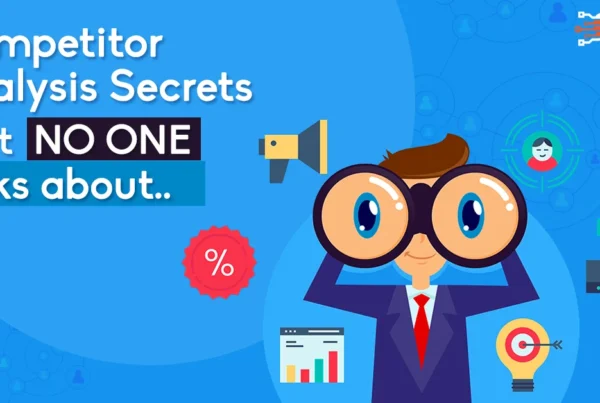Are you going through dilemmas in framing a successful digital marketing strategy? Do you think it’s going nowhere and you’re simply shooting in the dark? Have you come to a stage where you feel digital marketing isn’t your cup of tea?
It’s something widely seen that whoever trying to start a successful digital marketing strategy, their single worry is where to begin, whether to start the content first or to find customers initially or to understand the digital ecosystem first or design a strategy in the first place or not.
Now, what’s the exact issue? Have you ever tried to do an in-depth analysis of it??
Well, such ways of shooting in the dark create chaos and end up in non-productive outcomes in their digital marketing strategy.
When you start your digital journey without a proper thought process, you may end up in creating inappropriate content or put in all that marketing efforts that do not resonate with your target audience.
Is that fruitful by any means? Think about it!
Follow this 5 step-by-step thought process that a digital marketer should adapt to design a successful digital strategy.
Digital Media Ecosystem Understanding:

In this step, all you have to do is ask yourself the questions below
A. Available Digital Marketing Platforms for the Marketers.
Firstly as a digital marketer, you need to know different digital media platforms like search engines, Display Advertising websites, social media, email, and content marketing, etc. and the types of customers spend time on each platform
B. Digital Marketing Platforms for Organic promotions
You need to understand the available Digital Marketing Platforms which offers organic promotions and the limitations of each organic platforms. For Eg. You can rank your website for Free on search engines using SEO strategies and list your business for Free on various Social Media Platforms. This will be an ongoing process and you will understand it better if you spend more time on each of the available platform.
C. Paid Digital Marketing Platforms
Every Digital Marketing platform has a paid advertising platform. You need to understand the available options to market your business.
For Eg. If you have to understand Facebook paid advertising platform, You have to know the available features of the advertising platforms and how you use that for your business
D. You need to know the mentality of the people when they are using different platforms
Understanding the intent of your prospective audience when they are on each platform is very important.
For Instance :
If they are on Search Engines, they are looking for an immediate solution.
Use this information when you are creating Search Engine Strategy. If they are looking for information, show them blogs which provides answers to their questions and if they are looking for service show them your offerings.
One more instance, if you want to promote an e-book download or a webinar, it would be better to use Facebook and for promoting your service or product directly it would be ideal to us Google Search Platform.
This shows that content platforms change according to the interest and availability of the target audience.This inturn helps you to personalise the content as per the intent of the audience when they are each of the platforms
E. Understand when to use which platform and what you could offer that best suits their intent
Once you have an understanding of all the platforms, it’s important to crack the formula to win your prospective audience attention. So know how you can provide the content as per their intent and at which stage of your funnel they are in,
You need to identify whether consumers search in Google to get information, or whether your target people use more Facebook to search for data. Get a proper idea on why and when to use a particular digital marketing platform.
These 5 questions will enable you to you to make wise decisions in terms of content development and ad budget allocation and eventually results in higher ROI.
Understanding Consumer Journey:

Before creating any content, you need to understand the consumer journey. It is nothing but which media they use or navigate frequently to buy required products or services.
To understand the exact customer journey is the best way to convert prospects to loyal fans.
Based on their preferred platform, you will know which content to use and how it has to be formed, whether a blog, image, or a video.
Once you understand it, feed your information to the content creation team. This gives you an idea what your target consumers mainly consumes whether blogs, videos or webinars.
The content team create personalized contents or the most suitable content based on each target customer navigation platform and to suit their buying needs and persona.
For instance, if you are targeting a marketing professional, he consumes various content like blogs, videos, webinars, by mostly navigating in Google. Now you know which platform customer uses and what types of personalized contents can be created to reach this target customer effectively and easily rather than simply shooting in the dark without proper target positioning and segmentation.
By linking both the above steps, you will get to know what competitive edge you have among the other similar players in your industry and what digital marketing strategy you can adopt to get increased visibility on the targeted digital platform and how easily you can reach the target audience.
Digital Targeting: Once you identify your customer’s navigation habits and their preferred digital platform, you need to categorize your prospects under demographic segmentation or customer avatar variables like Age, gender, marital platforms, social media platforms, etc. If you are a digital marketer, your ideal prospects can be marketing professionals, students, business owners, etc.
Digital Targeting enables you to decide which content suitable for each target audience, what digital platform would be ideal to display your marketing ads.
Content and Creatives: Once you are done with the audience segmentation, you can use the different touch points in customers’ navigation to create a suitable style and form of content.
You need to understand your target audience fears and frustrations or wants and aspirations.
Suppose, if they are more interested in referring blogs than other content forms, you can feed this data on their preferred content style to your content creation team so that they can accordingly create specific content based on each target audience preferred style of content consumption.
For instance, the same piece of content will be better conveyed and reach effectively to a marketing professional as a webinar, to a business owner as a blog and a student as a video or image.
Here, you are segmenting your content style according to the preferred viewing style of your prospects and also based on the platform requirements.
In this way, content personalization and scaling are essential for grabbing increased customer attention in each digital platform and convert them to loyal fans.
Digital Strategy and Planning:

Digital strategy is nothing but deciding on the distribution of content specifically crafted and styled for each digital marketing platforms. Digital strategy and planning starts right from the first step of understanding digital ecosystem and followed in each of these stages to finally decide how the entire digital marketing thought process works smoothly and effectively on each target segment and what is your next step.
Effective content distribution and marketing strategy would bring in more traffic inflow to your content, but also awake interest in them which ultimately convert prospects to loyal fans and thereby you can retain them in your business in the long run.
In this way, you get a much clearer idea on whether to put your content as a blog on Facebook, video on Instagram and so on. This clarity on content distribution method is essential to create one content and reach out to the maximum number of people.
With a good distribution strategy, you will also know how much money to be invested, what type of content (image, blogs, infographics, etc) is distributed to each target audience. Then you can decide, say for instance, on Instagram you are going to reach 10,000 people through a video or SEO, your action plan is to generate “X” amount of traffic in the next 3 months. Such similar digital strategy and planning can be easily done.
To conclude, follow this step by step process to generate positive digital ROI and to be a successful digital marketer with high customer base.
Do you want to get a personalised 1-to-1 discovery session?
Book your 1-to-1 discovery call with us today!



